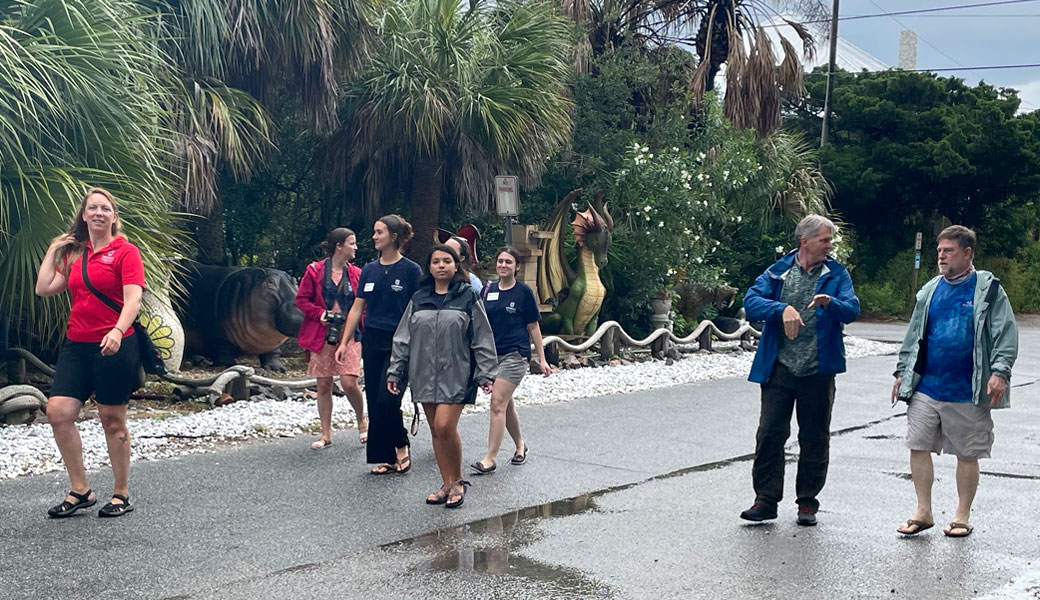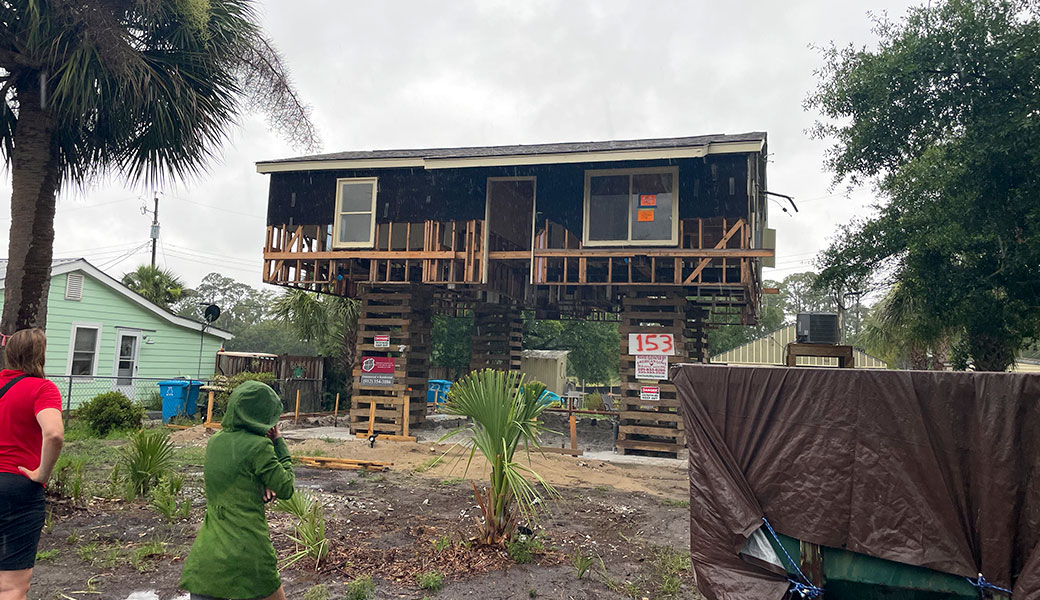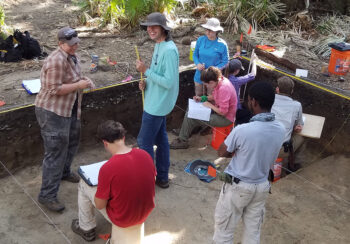Residents along Georgia’s coast are familiar with flooding, but the recent rise in sea levels means those floods have grown more frequent due to rising high tides, even on sunny days without rain.
Researchers from the University of Georgia’s Institute for Resilient Infrastructure Systems (IRIS) and River Basin Center (RBC) are working with the City of Tybee Island on the Tybee Island Back River Study to develop natural infrastructure solutions for flood-susceptible areas.
“We […] look at all the information together to try to come up with a solution that achieves the goals of the project—improving coastal resilience and sea level rise adaptation—but does it in a way that can be implemented given the social and political context,” said Alfred Vick, Georgia Power Professor in Environmental Ethics in UGA’s College of Environment and Design.
Vick, an affiliate of IRIS and the RBC, and his colleagues are focused on finding flood solutions informed by local community input so they can develop recommendations that address the needs of the City of Tybee Island.
To support their goals, the researchers deployed a GeoSurvey, which is a mobile and computer application that collects crowdsourced data. Tybee Island residents submitted photos of flood damage directly to the GeoSurvey, which the research team used to identify and create recommendations for flood-prone areas impacted by flooding, erosion and marsh die-off.
The research team also organized a virtual problem-solving meeting, or a charette, for residents and stakeholders in spring of 2021 to help navigate the complex economic and social factors at play.
The goal of the charette was to pinpoint potential areas of conflict for residents, like perceptions that government buy-back programs for flood-vulnerable properties offer limited benefits for property owners, and to find possible solutions, like innovative retreat strategies that would allow people to rent back their properties.

By including the community in their search for solutions from day one, the team was able to build local, user-generated information that served as an invaluable resource in developing recommendations—like building bioretention systems and bioswales—to alleviate run-off and other flooding issues.
Vick hopes the Back River Study will not only build resilience for the City of Tybee Island but will also serve as a blueprint for other island communities looking to combat sea level rise.
“Tybee is an early adopter,” Vick explains, “I think that’s the big impact. They were on the forefront of thinking about resilience and sea level rise and they remain at the forefront, so everyone is looking to see what Tybee does. When we finalize this plan, I think it will be seen very quickly as the precedent, and other island communities can take it and reinterpret it for themselves.”
IRIS and RBC affiliates will maintain an ongoing working relationship with the City of Tybee Island to emphasize their commitment as long-term partners vested in the island’s ecological health and its community’s resilience.
This collaboration between IRIS, the RBC and the Tybee Island Back River Study highlights how interdisciplinary research can lay the groundwork for increasingly innovative and resilient solutions that respond to flooding and sea-level rise in Georgia and beyond.
The Tybee Island Backwater Study also included Brian Bledsoe of the College of Engineering; Jon Calabria and Alison Smith of the College of Environment and Design; Jill Gambill of Marine Extension and Georgia Sea Grant; and Clark Alexander of the Skidaway Institute of Oceanography.
IRIS and the RBC are both dedicated to tackling complex water-management issues. IRIS integrates natural and conventional infrastructure systems to build community resilience in the face of disruptive events, like flooding and sea level rise. The RBC connects freshwater science to management and policy through applied scientific and policy research on the sustainable management of aquatic resources and ecosystems.






